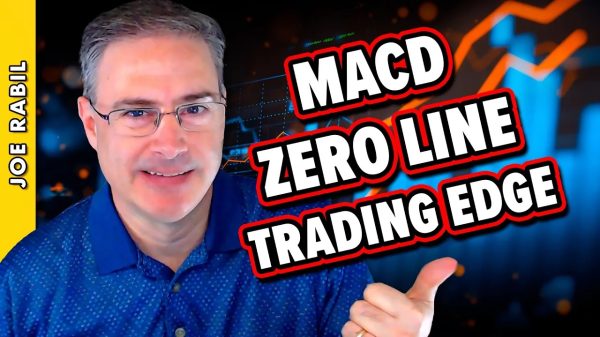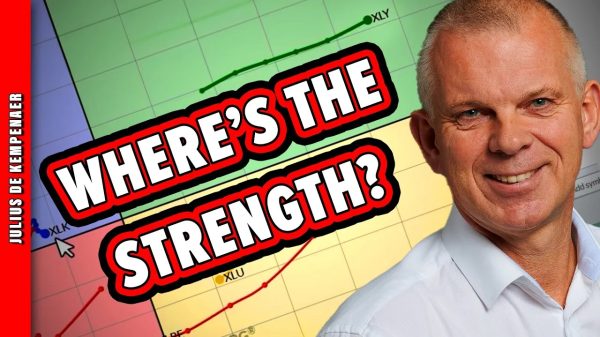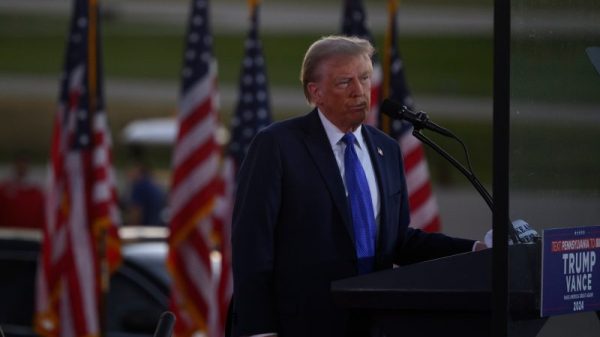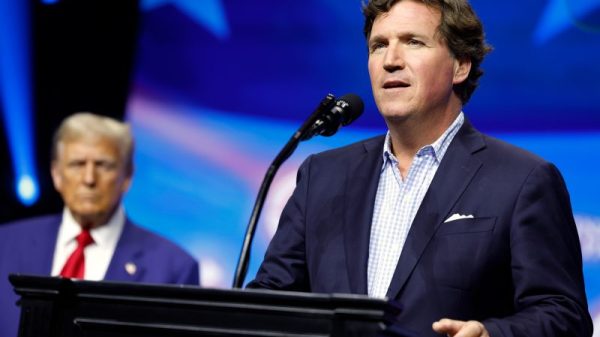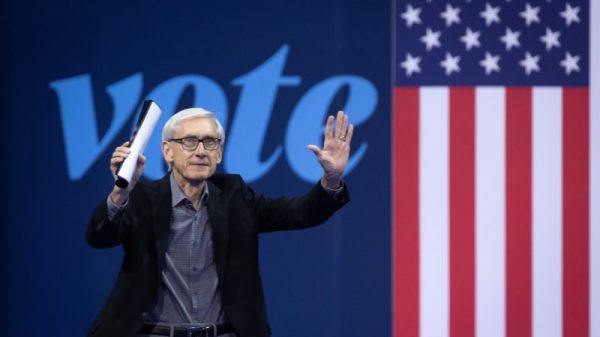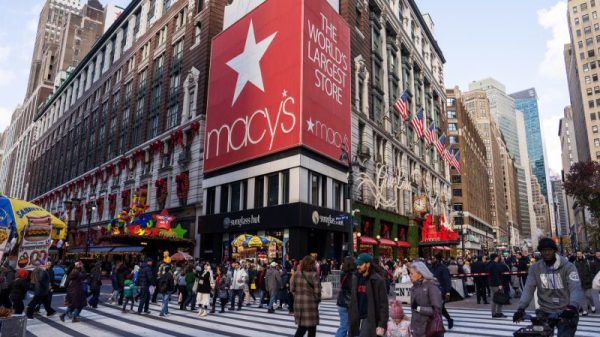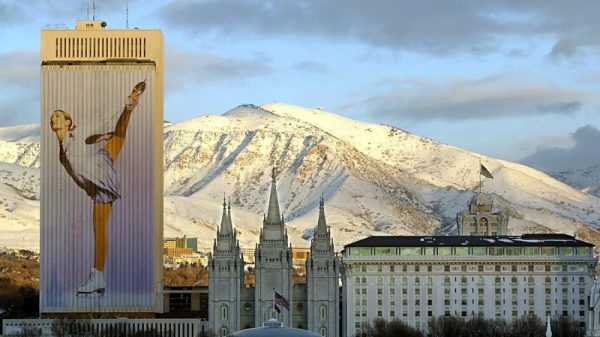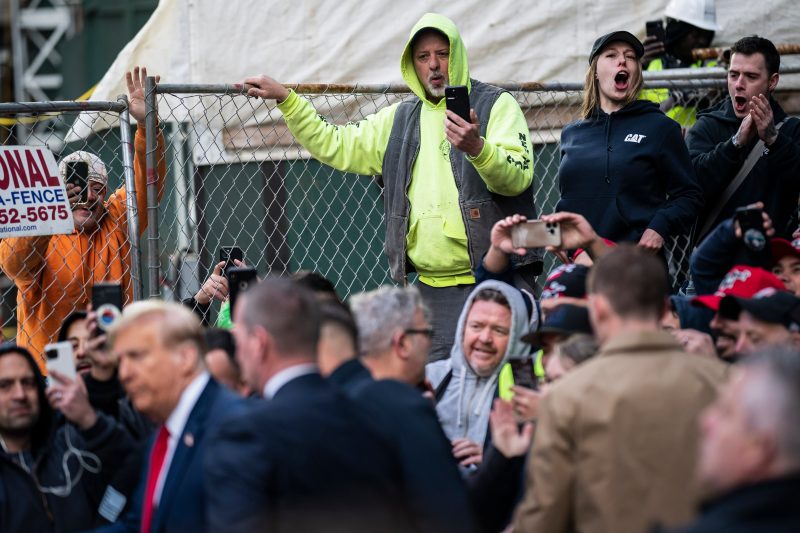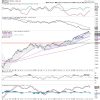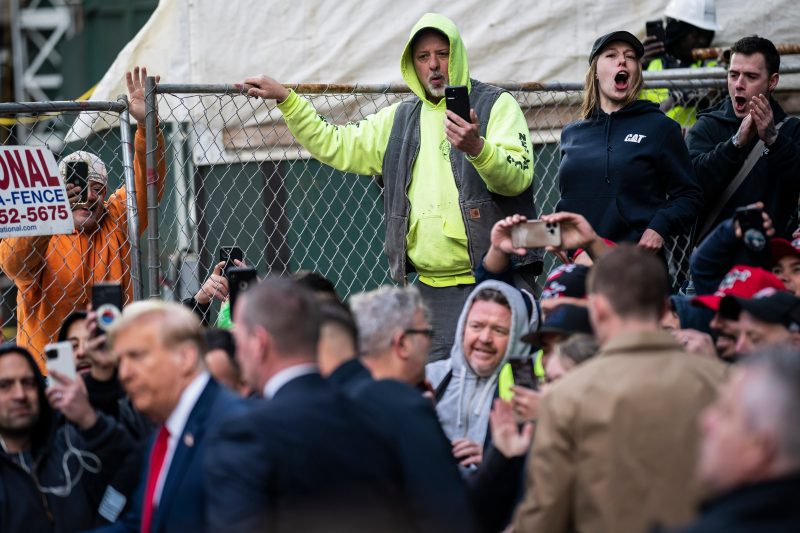
If Donald Trump is elected president on Nov. 5, it’s possible we’ll be talking a lot about union households in the days afterward.
About 1 in 5 voters tend to come from these households, and CNN’s Harry Enten reports that Trump is doing better with them than any Republican presidential candidate in four decades. A recent poll of Teamsters members also showed a huge shift toward Trump since Vice President Kamala Harris joined the 2024 race at the top of the Democratic ticket; members supported Trump over her by a nearly 2-to-1 margin. (The union itself made no endorsement.)
But as is so often the case, Trump appears to be testing just how much his newfound supporters will tolerate.
Despite his rise in union-household support — Trump lost these voters by 16 points in 2020 but trails by just nine now, according to Enten’s numbers — Trump keeps saying remarkably anti-union things.
Trump has in recent weeks offered praise for the concept of firing striking workers, which would be illegal, and this weekend he talked about how he would “get other people in” rather than pay workers overtime. The comments build on years-old ones in which Trump expressed a preference for nonunion labor.
Trump’s latest comments came Sunday at a rally in Erie, Pa., when he talked about his proposal not to tax overtime pay.
“I know a lot about overtime. I’ve hated to give overtime. I hated it,” Trump said. “I get other people — I shouldn’t say this, but I’d get other people in. I wouldn’t pay.”
Perhaps Trump’s most significant comments on this front came in an August event with Elon Musk, in which Trump praised the idea of having Musk lead a government efficiency commission. While making that case, Trump praised Musk for supposedly firing striking workers.
“Well, you, you’re the greatest cutter. I mean, I look at what you do,” Trump said. “You walk in and you just say, ‘You want to quit?’ They go on strike. I won’t mention the name of the company, but they go on strike and you say, ‘That’s okay. You’re all gone. You’re all gone. So every one of you is gone.’ And you are the greatest. You would be very good.”
The National Labor Relations Act makes it illegal to fire workers who are striking or threatening to strike.
It wasn’t clear precisely what labor dispute Trump was talking about; Musk runs many businesses. Trump running mate JD Vance later claimed Trump was talking about firing workers at the social-media platform X over alleged censorship, but Trump made no mention of censorship and specifically invoked striking workers.
Musk’s SpaceX has fired workers who criticized him in an open letter, leading to a lawsuit. The National Labor Relations Board in recent years has sanctioned Musk for unfair labor practices, including for a tweet aimed at discouraging unionization.
The United Auto Workers has also now filed a lawsuit in response to Trump’s comments to Musk, alleging that the two of them effectively threatened and intimidated union workers. And Trump’s comments drew Teamsters President Sean O’Brien, who just a month prior had spoken at the Republican National Convention, to called Trump’s comments “economic terrorism.”
These aren’t the first examples of Trump comments that could prove alienating to union stalwarts. Trump during his 2016 campaign expressed a preference for nonunion workers. He noted he has worked with union labor in New York and without it in Florida.
“If I had my choice,” he said, “I think I’d take it without.’’
He also made firm campaign promises to specific plants and areas, only to fail to deliver. And his record was often noticeably anti-union.
Focusing on Trump’s gains with union households can be misleading. Union households include a member of a union, but that doesn’t mean the voter is a union member. There is also what appears to be an increasing gap between union members and their leadership, who probably feel more strongly about union-specific issues.
Unions themselves also vary widely in their political makeup and their priorities, with members of trade unions tending to be more politically conservative than, say, members of teachers unions. We don’t have detailed data on how members of different types of unions are breaking down in the 2024 race, beyond the union-household numbers.
In many ways, Trump’s gains with union households is an extension of his gains more broadly with working-class voters. Trump has lost huge ground with more formally educated voters, while gaining with voters he once labeled “the poorly educated.”
But to the extent that union members do feel strongly about their organizations’ prerogatives and rights, it’s difficult to imagine more alienating comments than those approving of firing striking workers. And Trump on Sunday was practically bragging about depriving union members of overtime in comments Democrats could certainly use to paint Trump as antithetical to hardworking union members’ concerns.
Democrats haven’t really driven home this message yet on a large scale, save for the “Trump’s a scab” attacks at the Democratic National Convention. But given how huge these votes loom in the 2024 election, don’t be surprised if these unguarded Trump moments are featured down the home stretch of the campaign.


